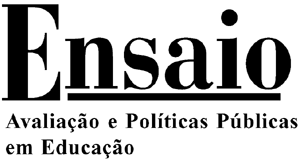This work aimed the study of the legal nature of the higher education supplied by the private segment in Brazil, in conformity with the existing dispositions in the national legal ordering. This article is a preponderantly theoretical-documentary work. It has been concluded that, with the constitutional development, the Brazilian positive law recognized the freedom of education, under the trusteeship of an interventionist State, which controls the educational system by regulating administrative acts, as service of public utility. The authorization acts of operation of Higher Education Institutions (IES) do not need concession contracts and, consequently, they do not need the procedure of hiring and the law that, as rule, grants the regime and the qualifications of the public service, in conformity with the unique paragraph, of the article 175, of the Constitution of the Republic of 1988 (CR/88). The precarious idiosyncrasy of the authorization finishes doing without the existence of the referred law and the procedure of hiring. Because of that, in the educational scope and through the exercise of the police power, there is no total freedom of the economic activity, specially in relation to the particular sector.
Private higher education; Service of public utility; Authorization of public service; Police power
